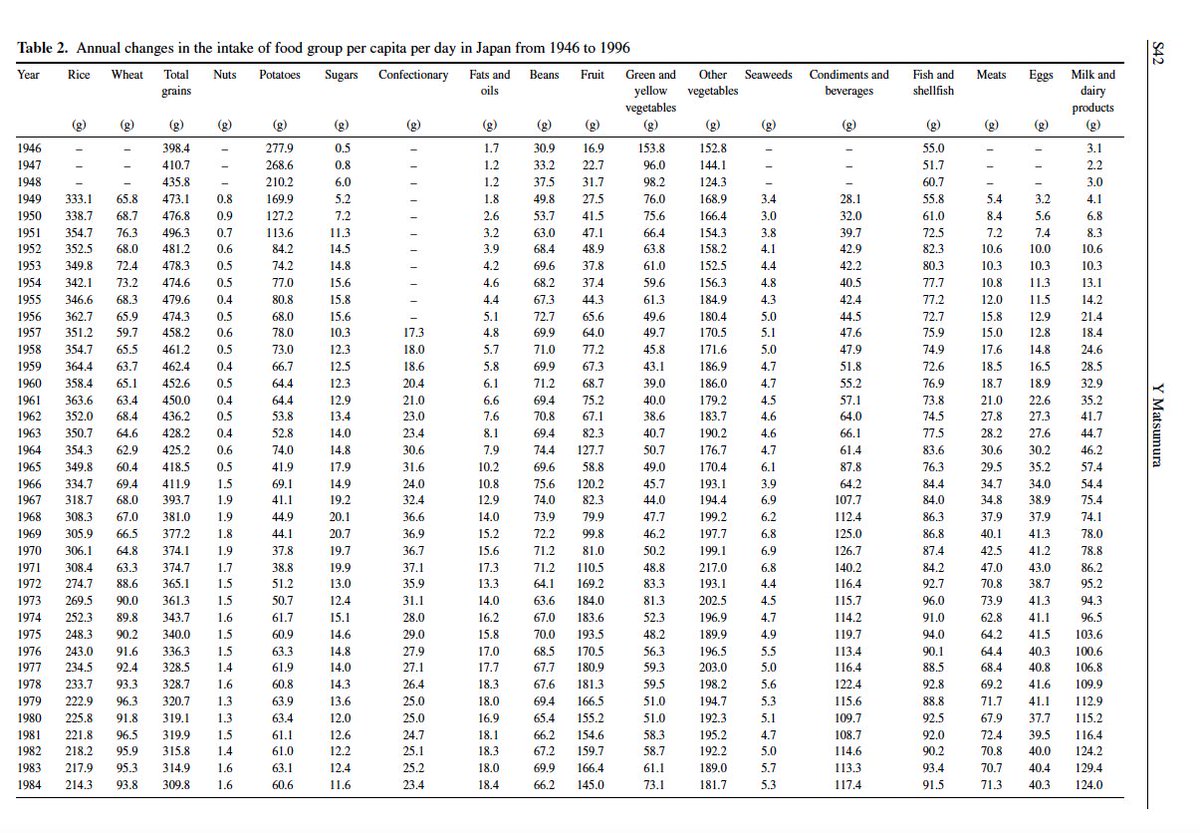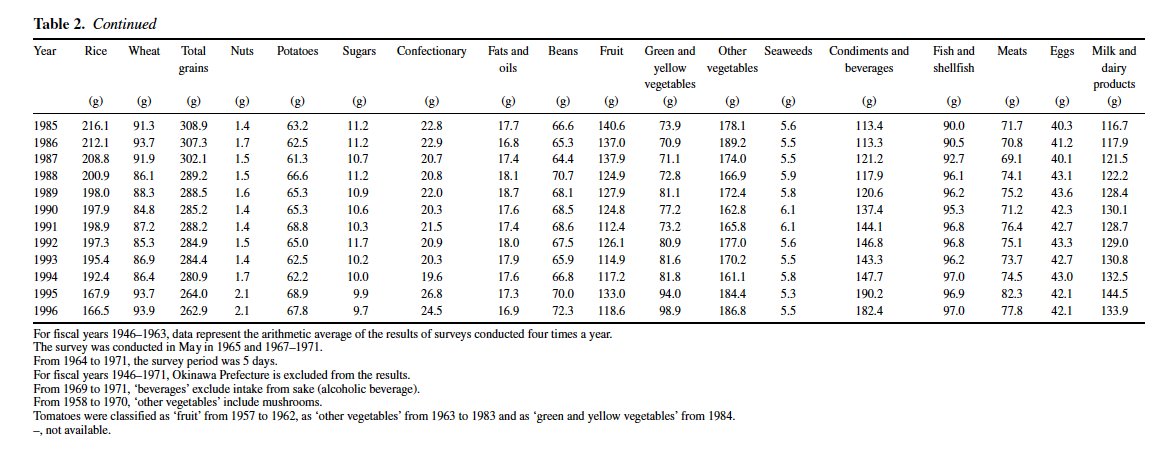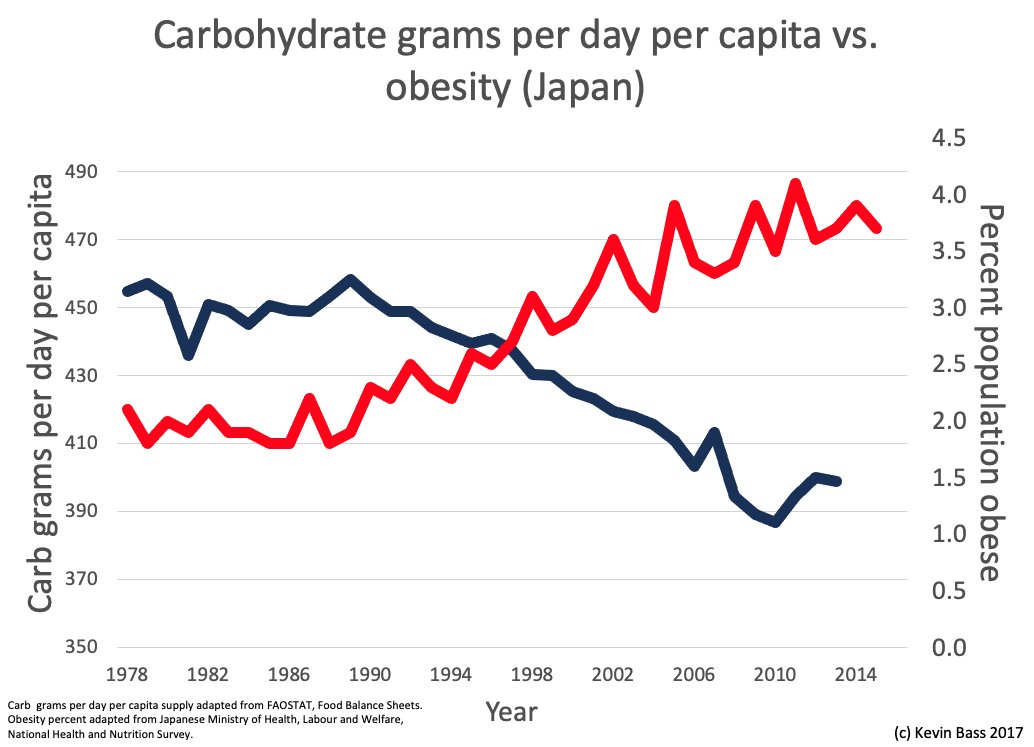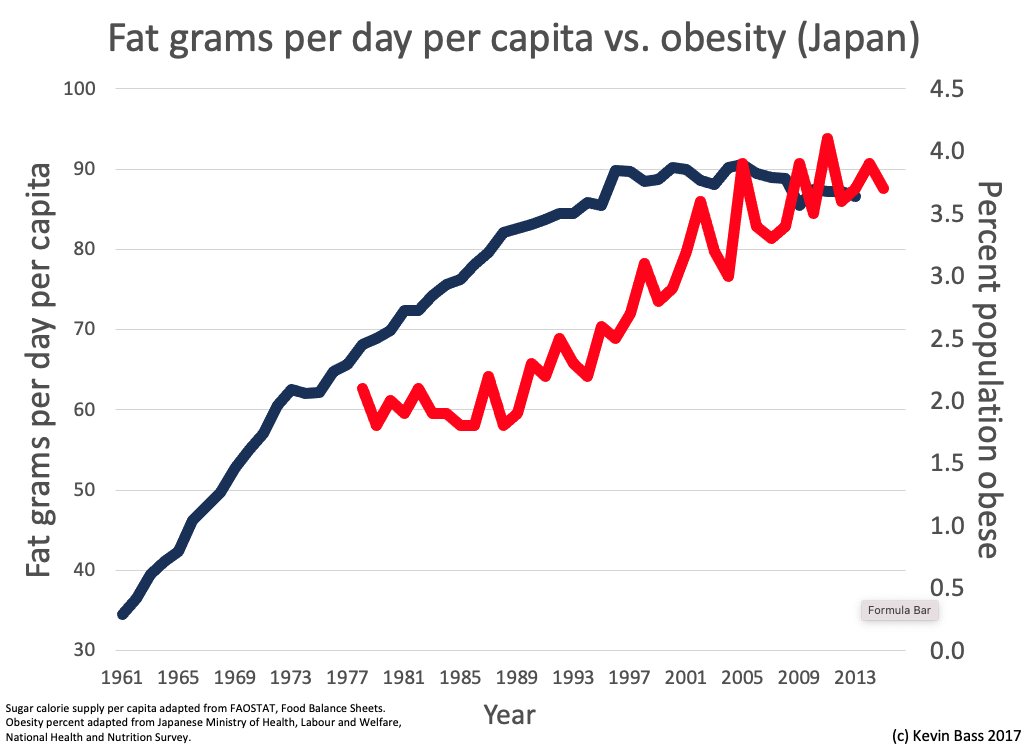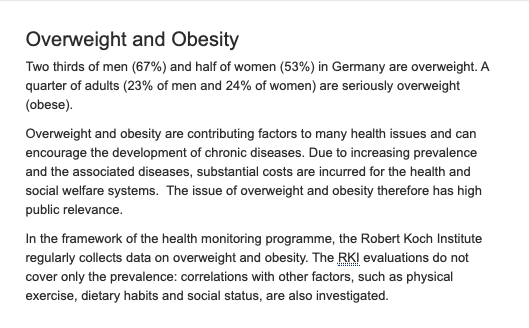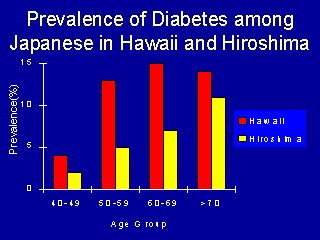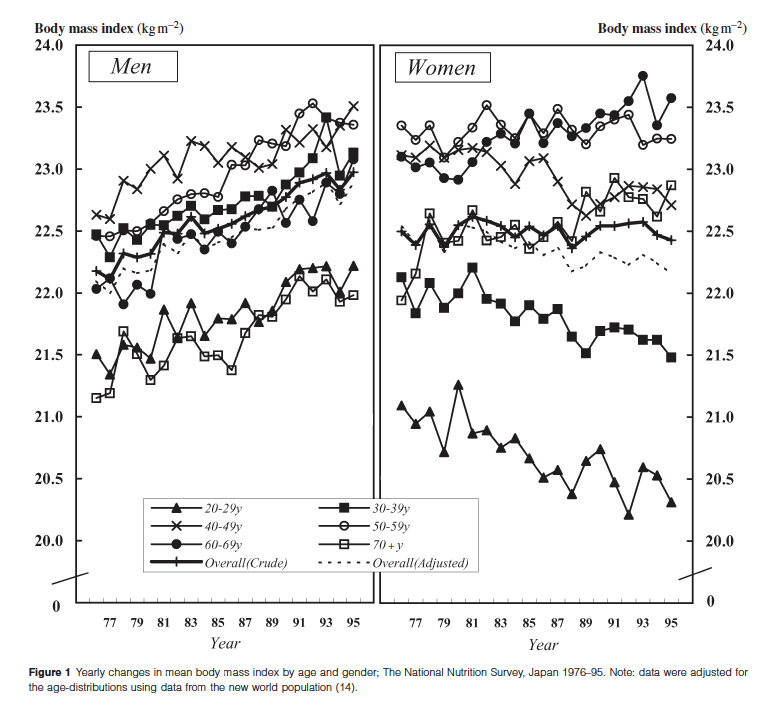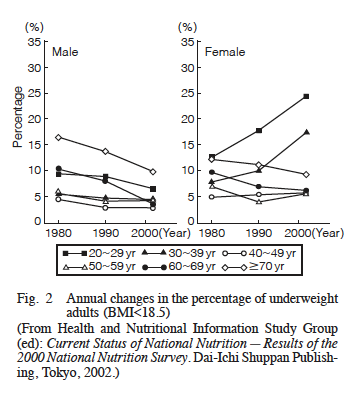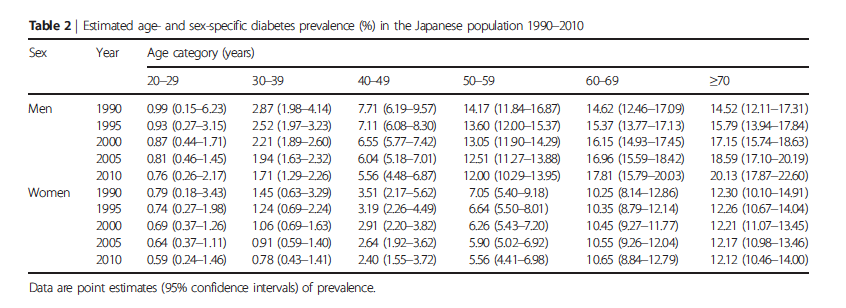If Japan eats so many carbs, why are the Japanese so lean?
As someone with three half-Japanese children, who speaks Japanese reasonably well, and who was strongly influenced in thinking about obesity by time spent in Japan, here are some thoughts.
Thread
1/n
As someone with three half-Japanese children, who speaks Japanese reasonably well, and who was strongly influenced in thinking about obesity by time spent in Japan, here are some thoughts.
Thread
1/n
Let& #39;s set the scene.
I have looked at datasets for dozens of modern countries, and Japan is the only country that consistently, across datasets, shows a declining calorie intake over time.
Here is survey data, food availability data, and obesity prevalence data, graphed.
2/n
I have looked at datasets for dozens of modern countries, and Japan is the only country that consistently, across datasets, shows a declining calorie intake over time.
Here is survey data, food availability data, and obesity prevalence data, graphed.
2/n
So unlike virtually every other modern country, the intake of food per capita in Japan seems to decline over time. That is interesting!
3/n
3/n
Here are the obesity data for Japan compared to United States and other Asian countries.
While Japan has a lower rate of obesity than America, it has a much higher rate of overweight than some other Asian countries.
https://pubmed.ncbi.nlm.nih.gov/20871654/
4/n">https://pubmed.ncbi.nlm.nih.gov/20871654/...
While Japan has a lower rate of obesity than America, it has a much higher rate of overweight than some other Asian countries.
https://pubmed.ncbi.nlm.nih.gov/20871654/
4/n">https://pubmed.ncbi.nlm.nih.gov/20871654/...
This is consistent with a creeping upward average BMI in Japan. (Forgive the formatting. I was bad at graphs when I made this.)
5/n
5/n
How have macronutrient trends looked during this transition? Like every other country going through a nutrition transition, Japan has seen an increase in dietary fat and decrease in dietary carbohydrate.
https://pubmed.ncbi.nlm.nih.gov/11708582/
6/n">https://pubmed.ncbi.nlm.nih.gov/11708582/...
https://pubmed.ncbi.nlm.nih.gov/11708582/
6/n">https://pubmed.ncbi.nlm.nih.gov/11708582/...
Here are more data from the same paper.
While grain consumption has plummeted by nearly half and rice consumption (which is almost entirely refined, white rice) has plummeted by more than half, BMI has creeped up.
It isn& #39;t the carbs.
https://pubmed.ncbi.nlm.nih.gov/11708582/
7/n">https://pubmed.ncbi.nlm.nih.gov/11708582/...
While grain consumption has plummeted by nearly half and rice consumption (which is almost entirely refined, white rice) has plummeted by more than half, BMI has creeped up.
It isn& #39;t the carbs.
https://pubmed.ncbi.nlm.nih.gov/11708582/
7/n">https://pubmed.ncbi.nlm.nih.gov/11708582/...
So maybe the decreasing carb and increasing fat intake is protecting the Japanese from obesity?
It& #39;s a good theory. The problem is that every single modern country is increasing fat and decreasing carbs, yet most are getting more obese, fast.
10/n
It& #39;s a good theory. The problem is that every single modern country is increasing fat and decreasing carbs, yet most are getting more obese, fast.
10/n
Here is the United States. https://twitter.com/kevinnbass/status/1352991670153977857
11/n">https://twitter.com/kevinnbas...
11/n">https://twitter.com/kevinnbas...
And a more comprehensive look https://twitter.com/kevinnbass/status/1096795224003801089
12/n">https://twitter.com/kevinnbas...
12/n">https://twitter.com/kevinnbas...
Here is China https://twitter.com/kevinnbass/status/1279945668761735168
13/n">https://twitter.com/kevinnbas...
13/n">https://twitter.com/kevinnbas...
This paper hits China even deeper https://twitter.com/kevinnbass/status/1354142538962231296
14/n">https://twitter.com/kevinnbas...
14/n">https://twitter.com/kevinnbas...
And here is a link to seminal work on nutrition transitions. As far as macronutrient changes go (higher fat, lower carb [but more refined carb], higher calorie), they are almost identical in every country around the world. https://www.jstor.org/stable/2938388?seq=1
15/n">https://www.jstor.org/stable/29...
15/n">https://www.jstor.org/stable/29...
So if anything, a decline in population-level carb intake *always* correlates with an increase in obesity in long-term country-level trends.
So it is not the carbs going down that is "protecting" the Japanese from obesity.
16/n
So it is not the carbs going down that is "protecting" the Japanese from obesity.
16/n
So what is it?
The answer to this is still more complicated than it seems at first glance, and it goes against some cherished dogmas.
This latter fact influenced me a lot, and is the main reason for posting this thread.
17/n
The answer to this is still more complicated than it seems at first glance, and it goes against some cherished dogmas.
This latter fact influenced me a lot, and is the main reason for posting this thread.
17/n
As I said, it& #39;s not about carbs.
But it& #39;s not about junk food, either. The Japanese (especially in Tokyo) have the highest density of vending machines in the world, and industrial food is everywhere to be seen--but morbid obesity isn& #39;t.
https://www.businessinsider.com/why-so-many-vending-machines-in-japan-2017-1
18/n">https://www.businessinsider.com/why-so-ma...
But it& #39;s not about junk food, either. The Japanese (especially in Tokyo) have the highest density of vending machines in the world, and industrial food is everywhere to be seen--but morbid obesity isn& #39;t.
https://www.businessinsider.com/why-so-many-vending-machines-in-japan-2017-1
18/n">https://www.businessinsider.com/why-so-ma...
One might argue that junk food in Japan isn& #39;t as bad as Western junk food. The vending machines do not contain tons of calorie-dense foods, they contain zero-calorie teas, etc.
19/n
19/n
This is quite an excellent point: why don& #39;t the Japanese buy and sell lots of hyper-palatable, calorie-dense foods in their vending machines and convenience stories (called konbini), if they logistically could?
20/n
20/n
Answer: the food environment can only exist with a food purchaser. And Japanese people do not consume large quantities of calorie-dense, ultraprocessed foods. Correspondingly, they do not buy them.
Therefore they are not sold.
21/n
Therefore they are not sold.
21/n
Yes, there are many sugar-sweetened beverages in Japan. These are incredibly common and accessible.
But most Japanese simply do not consume large quantities of "indulgent", high-fat, high-sugar food.
22/n
But most Japanese simply do not consume large quantities of "indulgent", high-fat, high-sugar food.
22/n
Is this because advertisers haven& #39;t "hacked" the brains of Japanese people--because they are more scrupulous in Japan, or have been less effective than in America, as @MichaelMossC has documented in his past few books?
23/n
23/n
Thus, if the "push" model of @KevinH_PhD is correct ( https://pubmed.ncbi.nlm.nih.gov/29265772/ ),">https://pubmed.ncbi.nlm.nih.gov/29265772/... the "push" is only as strong as the demand that the advertisers can generate?
24/n
24/n
However, there are some interesting data points that, I suggest, may give us reason to pause before fully embracing this idea.
To be continued in a moment...
25/n
To be continued in a moment...
25/n
To backtrack to tweet #12, it appears images are no longer showing in that tweet (at least for me). Here is the graph.
https://twitter.com/kevinnbass/status/1345190580847042560
26/n">https://twitter.com/kevinnbas...
https://twitter.com/kevinnbass/status/1345190580847042560
26/n">https://twitter.com/kevinnbas...
But before critiquing a "weak advertising hypothesis" to explain Japan& #39;s resistance to obesity (referred to directly above), I want to run through another hypothesis: something about Japanese culture stops them from consuming excess ultraprocessed foods.
27/n
27/n
I cannot quantify this, but at one point I really liked @MicheleJGelfand& #39;s concept of loose and tight cultures to explain this.
https://twitter.com/MicheleJGelfand/status/1270019568740847616
28/n">https://twitter.com/MicheleJG...
https://twitter.com/MicheleJGelfand/status/1270019568740847616
28/n">https://twitter.com/MicheleJG...
If there is one thing that characterizes Japanese culture, IMO, it clusters around conscientiousness, moderation, control, cleanliness, etc.--very much "tight culture" characteristics.
Japan is a very "tight" culture.
29/n
Japan is a very "tight" culture.
29/n
However, this doesn& #39;t explain why Germany, another "tight" culture, is quickly approaching America& #39;s rate of obesity, and has a much higher rate than Japan.
https://www.rki.de/EN/Content/Health_Monitoring/Main_Topics/Overweight_Obesity/obesity_node.html
30/n">https://www.rki.de/EN/Conten...
https://www.rki.de/EN/Content/Health_Monitoring/Main_Topics/Overweight_Obesity/obesity_node.html
30/n">https://www.rki.de/EN/Conten...
On the other hand, the rate of obesity in Germany *is* about half that of America.
Here& #39;s a paper idea. Classify different countries into tight and loose cultures and see what the correlation is with the obesity rate.
31/n
Here& #39;s a paper idea. Classify different countries into tight and loose cultures and see what the correlation is with the obesity rate.
31/n
Let& #39;s look at some more data. These data are striking.
Here are the official overweight and obesity statistics in the United States, Asian-Americans vs whites.
Similar rates of overweight but just 1/3 the rate of obesity, in America.
https://minorityhealth.hhs.gov/omh/browse.aspx?lvl=4&lvlid=55
32/n">https://minorityhealth.hhs.gov/omh/brows...
Here are the official overweight and obesity statistics in the United States, Asian-Americans vs whites.
Similar rates of overweight but just 1/3 the rate of obesity, in America.
https://minorityhealth.hhs.gov/omh/browse.aspx?lvl=4&lvlid=55
32/n">https://minorityhealth.hhs.gov/omh/brows...
These rates of obesity among Asian-Americans were similar as those among Japanese-Americans in California. http://healthpolicy.ucla.edu/publications/Documents/PDF/2015/Japanese-Americans-report-apr2015.pdf
33/n">https://healthpolicy.ucla.edu/publicati...
33/n">https://healthpolicy.ucla.edu/publicati...
Is there something about being Asian that is protective against obesity?
Let& #39;s look at another statistic. Diabetes.
34/n
Let& #39;s look at another statistic. Diabetes.
34/n
Despite having an obesity rate of only about 4%, Japan has an age-adjusted prevalence of type 2 diabetes that is slightly lower than that of America, at around 7.9% (Table 3).
https://www.ncbi.nlm.nih.gov/pmc/articles/PMC4578492/
35/n">https://www.ncbi.nlm.nih.gov/pmc/artic...
https://www.ncbi.nlm.nih.gov/pmc/articles/PMC4578492/
35/n">https://www.ncbi.nlm.nih.gov/pmc/artic...
America& #39;s is 9.4%.
https://www.cdc.gov/diabetes/pdfs/data/statistics/national-diabetes-statistics-report.pdf
36/n">https://www.cdc.gov/diabetes/...
https://www.cdc.gov/diabetes/pdfs/data/statistics/national-diabetes-statistics-report.pdf
36/n">https://www.cdc.gov/diabetes/...
The same goes for other countries in Asia. Despite extremely low obesity rates (Malaysia has the highest rate of obesity at 9%, China is about 6%, America 43%), the rate of diabetes is very similar in Asian countries compared to the United States.
37/n
37/n
Here is where things get interesting. Even though Japan& #39;s diabetes prevalence is lower than America& #39;s, Asian Americans have much higher diabetes prevalence than non-Hispanic whites.
11.4% (Asian Americans) vs. 8% (non-Hispanic whites).
38/n
11.4% (Asian Americans) vs. 8% (non-Hispanic whites).
38/n
Let me therefore put forward an unusual hypothesis. One that I do not really know how to test but is what makes sense to me.
39/n
39/n
The reason that Japanese food culture is so much "lighter" is in part because Japanese genetics cannot handle America-level obesity.
40/n
40/n
It is either an unconscious mechanism at the level of the brain (the brain does not want to get as fat) or a conscious mechanism. I don& #39;t know this part.
41/n
41/n
But physiologically and biologically, Japanese people are roughly as fat as Americans (similar rates of T2DM) but at the level of BMI, seem less fat.
And thus while the obesity rate is lower, the physiological state is only a little less obese.
42/n
And thus while the obesity rate is lower, the physiological state is only a little less obese.
42/n
And when Asian Americans get transplanted into America, they are then exposed to a food environment suited to Caucasian genetics and develop higher rates of metabolic syndrome and much higher rates of type 2 diabetes.
43/n
43/n
They are less obese at the level of BMI but more metabolically dysregulated because on a physiological level, are actually even more "obese" in America than most Americans, because they physiologically cannot handle the American food environment.
44/n
44/n
Thus we can generate a few hypotheses that cannot be tested experimentally but can be tested in the coming decades observationally.
1. If rates of obesity reach similar to America& #39;s in any Asian country, rate of type 2 diabetes will far exceed America& #39;s, by 2- or 3-fold.
45/n
1. If rates of obesity reach similar to America& #39;s in any Asian country, rate of type 2 diabetes will far exceed America& #39;s, by 2- or 3-fold.
45/n
2. However, here is the real hypothesis, because I don& #39;t think #1 will happen. The rate of obesity will *never*, *ever* in ANY Asian country reach anywhere near the rates of obesity in the Caucasian countries, in not a single Asian country, ever.
46/n
46/n
So I think the rate of metabolic dysregulation and obesity are linked. I think that as a population approaches greater metabolic dysregulation, its obesity rate will level off to a genetically appropriate level, and culture will reflect this. The mechanism I don& #39;t know.
47/n
47/n
Here again is an interesting figure that fits with this hypothesis.
https://www.pitt.edu/~super1/lecture/lec0461/011.htm
48/n">https://www.pitt.edu/~super1/l...
https://www.pitt.edu/~super1/lecture/lec0461/011.htm
48/n">https://www.pitt.edu/~super1/l...
Let& #39;s chase one more set of facts that I think is very interesting. The genderedness of obesity and diabetes in Japan. This was actually one of the main reasons I created this thread. https://abs.twimg.com/emoji/v2/... draggable="false" alt="🤪" title="Dummes Gesicht" aria-label="Emoji: Dummes Gesicht">
https://abs.twimg.com/emoji/v2/... draggable="false" alt="🤪" title="Dummes Gesicht" aria-label="Emoji: Dummes Gesicht">
49/n
49/n
We said the rate of obesity in Japan is not rising much. However this is not entirely true. It is rising fast among men but declining among women.
Here is avg BMI among Japanese men and women.
From 1976-1995, average female BMI *DECREASED*
https://pubmed.ncbi.nlm.nih.gov/12164470/
50/n
tbc">https://pubmed.ncbi.nlm.nih.gov/12164470/...
Here is avg BMI among Japanese men and women.
From 1976-1995, average female BMI *DECREASED*
https://pubmed.ncbi.nlm.nih.gov/12164470/
50/n
tbc">https://pubmed.ncbi.nlm.nih.gov/12164470/...
In fact average BMI decreased among all women younger than 50 and among women in their 20s by nearly a full BMI point.
Whoa. The average Japanese woman at that age weighs about 5 pounds less in the 1990s compared to the 1970s. Average man, 5 pounds more.
Whoa. The average Japanese woman at that age weighs about 5 pounds less in the 1990s compared to the 1970s. Average man, 5 pounds more.
Here are the same data, graphed to look at incidence of overweight.
Incidence of overweight among Japanese women declined, while it skyrocketed among men.
https://www.med.or.jp/english/pdf/2005_01/034_041.pdf">https://www.med.or.jp/english/p...
Incidence of overweight among Japanese women declined, while it skyrocketed among men.
https://www.med.or.jp/english/pdf/2005_01/034_041.pdf">https://www.med.or.jp/english/p...
This trend continued into the 2000s. This paper does not look at women in their 20s or 30s, but the BMI of women in their 40s and 50s continued to drop. Presumably women in their 20s and 30s saw the same trend, but we do not know from this paper https://link.springer.com/article/10.1007/s13340-018-0380-0">https://link.springer.com/article/1...
Lesson?
The women (mostly) canceled out the men. This is the major reason why the Japanese obesity prevalence curve is nearly flat.
It is an entirely gender-driven phenomenon.
Here is where things get sad. And there are lessons for us in America.
The women (mostly) canceled out the men. This is the major reason why the Japanese obesity prevalence curve is nearly flat.
It is an entirely gender-driven phenomenon.
Here is where things get sad. And there are lessons for us in America.
Among women in their 20s in Japan, the rate of underweight rose from 12% to nearly 25%.
That is to say, 1-in-4 young Japanese women have a BMI below 18.5. Which is really, really thin.
And nearly 1-in-5 Japanese women in their 30s are that way.
https://www.med.or.jp/english/pdf/2005_01/034_041.pdf">https://www.med.or.jp/english/p...
That is to say, 1-in-4 young Japanese women have a BMI below 18.5. Which is really, really thin.
And nearly 1-in-5 Japanese women in their 30s are that way.
https://www.med.or.jp/english/pdf/2005_01/034_041.pdf">https://www.med.or.jp/english/p...
It is true that the rate of type 2 diabetes among women has declined over this period of time. https://pubmed.ncbi.nlm.nih.gov/26417410/
However...">https://pubmed.ncbi.nlm.nih.gov/26417410/...
However...">https://pubmed.ncbi.nlm.nih.gov/26417410/...
There was an elevated risk of death among Japanese women with a BMI under 19.
However this was not significant if excluding deaths within the next 5 years (excluding people who were thin because they were sick and dying).
https://www.med.or.jp/english/pdf/2005_01/034_041.pdf">https://www.med.or.jp/english/p...
However this was not significant if excluding deaths within the next 5 years (excluding people who were thin because they were sick and dying).
https://www.med.or.jp/english/pdf/2005_01/034_041.pdf">https://www.med.or.jp/english/p...
So causing the obesity rate to decrease among a group of people comes with the tradeoff, in some cases, of increasing the risk of overweight among the thinnest. That is one reason to be careful with obesity interventions (to a point).
I am becoming exhausted why did I start this thread omg I have work to do  https://abs.twimg.com/emoji/v2/... draggable="false" alt="😭" title="Laut schreiendes Gesicht" aria-label="Emoji: Laut schreiendes Gesicht">
https://abs.twimg.com/emoji/v2/... draggable="false" alt="😭" title="Laut schreiendes Gesicht" aria-label="Emoji: Laut schreiendes Gesicht">
Anyway, I looked through the WHO dataset and the average BMI among women has decreased by 0.3 since 1983, while for men it has increased by 0.7.
That is very small.
That is very small.
Meanwhile both male and female obesity have increased. This is probably due to older men and women.
Still, even if all Japanese people were men, the obesity rate would only be 4.8%. So the gender effect is not responsible for everything, or even much at all.
Still, even if all Japanese people were men, the obesity rate would only be 4.8%. So the gender effect is not responsible for everything, or even much at all.
But what the gender effect does tell us is that social factors, in certain contexts, can reduce BMI on a population level. (Though the underweight part is clearly freaking horrible.)
Yet this genderedness of Japanese BMI and obesity does not explain Japanese BMI and obesity. Why is it so low? Why is Japanese eating behavior so much better at not producing obesity?
Thus we still need an explanation.
Thus we still need an explanation.
The situation in Japan is very similar to that in other Asian countries.
I think this is either genetic, or a cultural response to genetics.
I think this is either genetic, or a cultural response to genetics.
However if this is the right interpretation, then that would argue that persuading the rest of society to radically change the food environment & eating behavior is going to be challenging, since we will be going against a biologically based preference to be as fat as possible.
Disclaimer: This thread is not necessarily "my views". I was just working through things out loud. Although I& #39;m often accused of being a drone for the orthodoxy, people who have followed me for a while know it& #39;s the opposite, and I just love ideas.
Nonetheless I am going to run with these interpretations until someone can show me data that are in conflict with them. Then I will change them, because I love to learn.
This is very much an evidence-free zone, so we really don& #39;t know.
This is very much an evidence-free zone, so we really don& #39;t know.
Takeaways:
1. Carbs always decrease, fats always increase during countries& #39; nutrition transitions. The Japanese eat a lot of white rice (refined carbs) and are about as "physiologically obese" as Americans.
1. Carbs always decrease, fats always increase during countries& #39; nutrition transitions. The Japanese eat a lot of white rice (refined carbs) and are about as "physiologically obese" as Americans.
2. This white rice intake has been dramatically declining, yet Japan& #39;s prevalence of type 2 diabetes and "physiological obesity", not to mention actual obesity, has grown only slightly and probably mainly among old people.
3. It& #39;s almost as if the Japanese practiced severe carbohydrate restriction compared to baseline and found that it did not work. Go figure Gary Taubes. They need to start intermittently fasting like Gary. That should work. https://abs.twimg.com/emoji/v2/... draggable="false" alt="👀" title="Augen" aria-label="Emoji: Augen">
https://abs.twimg.com/emoji/v2/... draggable="false" alt="👀" title="Augen" aria-label="Emoji: Augen">
4. Really heavy junk food consumption is not as common in Japan, even though it logistically could be, probably because Japanese people don& #39;t want it. Whether this is because advertisers simply failed in Japan or Japanese people prefer not to is not clear.
5. There might be some population-based hardwiring of the extent to which metabolic dysfunction is acceptable in a society, and culture might respond accordingly to tamp down on that.
6. In contrast, it might be that certain ethnicities more predisposed to metabolic dysfunction might be less predisposed to actual obesity on an individual level. This is unclear.
7. Social forces that cause BMI to decline can increase the risk of underweight and possibly thereby the risk of death, so we should be careful.
8. If to be as obese as possible until a certain level of metabolic dysfunction is reached is a biological preference on a population level, it is going to be difficult to persuade the population to reduce obesity.
Fin.
I need to try to get some real work done now...
75/75
Fin.
I need to try to get some real work done now...
75/75
Addendum
Think of it this way.
Think about COVID. It& #39;s really hard to motivate a population to tackle COVID, because one does not see the fallout in a dramatic way if you are an average person.
76/n
Think of it this way.
Think about COVID. It& #39;s really hard to motivate a population to tackle COVID, because one does not see the fallout in a dramatic way if you are an average person.
76/n
If you have a homogeneous population or a dictatorship, it becomes a lot easier. That& #39;s why there is no COVID in Taiwan (homogeneous) or China (dictatorship).
If it was Ebola, every country would scramble and lockdown in a serious way.
77/n
If it was Ebola, every country would scramble and lockdown in a serious way.
77/n
But it& #39;s COVID.
It& #39;s the same as with obesity and metabolic dysfunction. Democratic countries are going to tolerate probably as much obesity as they can get away with until the health consequences become severe.
78/n
It& #39;s the same as with obesity and metabolic dysfunction. Democratic countries are going to tolerate probably as much obesity as they can get away with until the health consequences become severe.
78/n
Genetics determine when health consequences become severe.
The consequences of obesity are about equally severe in different countries.
So the case of Japan actually isn& #39;t a hopeful one. It& #39;s actually a pretty pessimistic one.
79/n
The consequences of obesity are about equally severe in different countries.
So the case of Japan actually isn& #39;t a hopeful one. It& #39;s actually a pretty pessimistic one.
79/n
If my interpretations are right, it says that democratic countries/cultures have handled and will handle obesity like they handle COVID. Depending on genetic predisposition, countries/cultures will be more or less strict on obesity.
80/n
80/n
Japanese people is quite strict on being healthy, but that is because everyone will be sick if they are not.
81/n
81/n
That& #39;s my interpretation of the data. I don& #39;t really see "low obesity" when I see Japan. I see "as much obesity as they are willing to tolerate as a society", which matches in terms of its metabolic consequences about what we are willing to tolerate as a society.
82/n
82/n
Sorry to be a pessimist. It& #39;s not where I saw this thread going, but it& #39;s where it went.  https://abs.twimg.com/emoji/v2/... draggable="false" alt="🤷♂️" title="Achselzuckender Mann" aria-label="Emoji: Achselzuckender Mann">And the more I think about it, the more I think this is probably right...
https://abs.twimg.com/emoji/v2/... draggable="false" alt="🤷♂️" title="Achselzuckender Mann" aria-label="Emoji: Achselzuckender Mann">And the more I think about it, the more I think this is probably right...
83/83
83/83
I received this question: https://twitter.com/SarahGrynpas/status/1390544834499330051">https://twitter.com/SarahGryn...
The answer is that Japan actually does not do better than other Asian countries with obesity. Japan is right in the middle in Asia, see:
https://www.genre.com/knowledge/publications/uwfocus14-2-cheong-en.html">https://www.genre.com/knowledge...
https://www.genre.com/knowledge/publications/uwfocus14-2-cheong-en.html">https://www.genre.com/knowledge...
Consistent with my first prediction in this thread, Malaysia, which has the highest rate of obesity in Asia, also has an age-adjusted prevalence of type 2 diabetes of 16-21% (depending on the reference).
That is catastrophic.
That is catastrophic.
It is also twice as high as the United States, despite an obesity rate only one-third as high.
Imagine if Malaysia had the same obesity rate as the United States. Half the population might have type 2 diabetes.
This is a *constraint* that requires different governance.
Imagine if Malaysia had the same obesity rate as the United States. Half the population might have type 2 diabetes.
This is a *constraint* that requires different governance.
Economically advanced countries would never allow a 20% T2DM rate to happen.
Thus, we are starting to winnow down the way we think about this. There is nothing ethnically innate that prevents obesity.
The low obesity rates in Japan are probably a response.
Thus, we are starting to winnow down the way we think about this. There is nothing ethnically innate that prevents obesity.
The low obesity rates in Japan are probably a response.
The genetic constitution of the population is a limit on how bad the problem can become. In Japan, there is not much wiggle room, and the economy and society is advanced.
Thus there are many things the Japanese do right to keep the prevalence down, and this probably happened organically over time as Japanese society responded to the nutrition transition.
A dysfunctional society cannot make such a response, thus Malaysia has a T2DM rate of 20%.
A dysfunctional society cannot make such a response, thus Malaysia has a T2DM rate of 20%.
So again there is nothing impressive about Japan if we understand that there are genetic constraints.
We can replicate their approach but the real problem in our case is motivating people to do that when the threat of disease is not nearly as great here.
That is the problem.
We can replicate their approach but the real problem in our case is motivating people to do that when the threat of disease is not nearly as great here.
That is the problem.

 Read on Twitter
Read on Twitter



